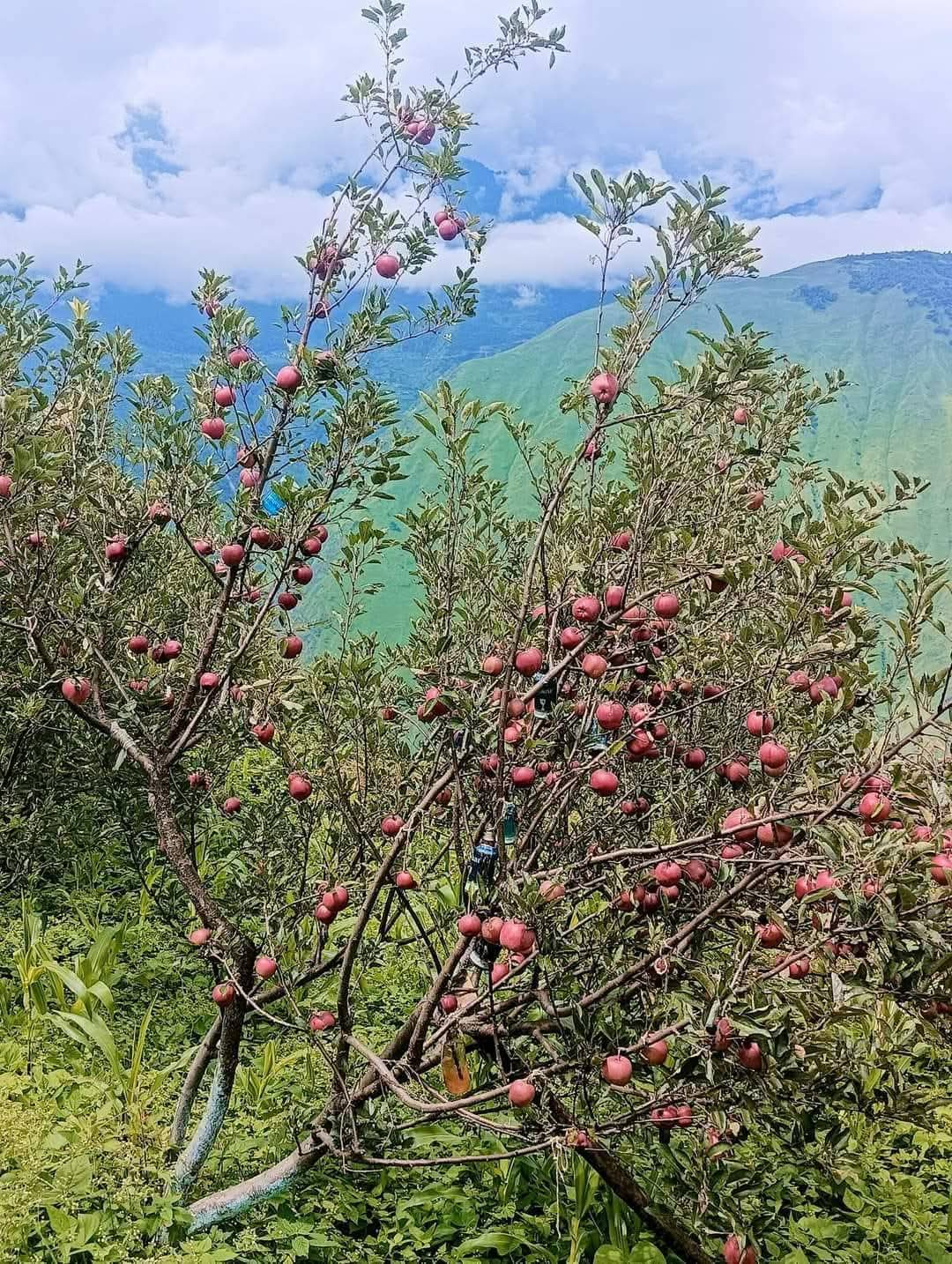Bajura, Nepal - In the remote hills of western Nepal, the village of Pandusaina in Budhinanda Municipality–9, Bajura, is emerging as a model for high-altitude fruit farming. Over 300 households have embraced commercial apple cultivation as their main source of livelihood. Once cut off by poor road access, this village is transforming through perseverance, innovation, and the sweet potential of apples.
From Isolation to Opportunity
Until recently, apple farming in Pandusaina was limited to indigenous varieties, with much of the produce going to waste due to the lack of access to external markets. The extension of the Martadi–Kolti road, which now passes through the village, has been a game-changer. Farmers have started growing improved varieties such as Golden, High-Density, Delicious, Fuji, and Gala, ushering in a new era of commercial apple farming.
According to local apple farmer Man Bahadur Rawat, over 7,500 apple saplings were planted last year, and another 2,500 saplings this year. “We earned close to NPR 5 million from apples last season,” he said. “Though hailstorms affected this year’s yield, those with access to irrigation still had a decent harvest.”
A Budding Apple Capital
Pandusaina is now widely referred to as the "apple capital of Bajura" due to its growing output and quality produce. Where previously only local varieties were grown, farmers now import saplings from Manang and other apple-producing regions to increase yield and resilience. Leading growers include Sher Bahadur Rawat, Man Bahadur Rawat, and Charka Bogati.
“Before the road reached our village, there was no market for our apples,” said Ward Chairperson Man Bahadur Rawat. “Now, our produce reaches Martadi and is sold across various parts of Nepal.”
Despite the progress, lack of irrigation remains a key obstacle. While apple farming has become the dominant livelihood, limited water availability hampers productivity. Farmers believe that with better irrigation, apple farming alone could sustain most households in Pandusaina.
Roadblocks and Risks
Transport remains a double-edged sword. Though roads have opened markets, frequent landslides and blockades on the Martadi-Kolti route during harvest season delay or disrupt market access. The Karnali Corridor offers partial relief, but Saffe-Martadi and Martadi-Kolti roads are still unreliable when apples are ready for market.
Beyond Pandusaina
Other highland municipalities in Bajura-such as Swamikartik Khapar, Jagannath, Badimalika, Gaumul, Himali, and Khaptad Chededaha-also report increasing apple production. According to Prem Raj Nyaupane, Information Officer at the Agricultural Knowledge Center in Bajura, the district produces nearly 600 metric tons of apples annually, which are sold in various urban markets across Nepal.
The Way Forward
To sustain and expand this success, experts and locals alike are calling for investment in irrigation, cold storage, and reliable transport infrastructure. Apple farming in Pandusaina is not only fostering self-reliance but also contributing to Nepal’s broader goals of rural resilience and agri-based economic growth.
“Pandusaina’s apple journey reflects both the potential and challenges of mountain agriculture,” said local leaders. “With the right support, this village can serve as a model for sustainable, climate-resilient farming in Nepal’s highlands.”
🟢 Ecosphere News
Empowering Communities | Reporting Realities